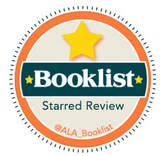Before and AfterWho says a rhyming couplet has to be at the end of a poem? When you suddenly rhyme, a new chapter begins in the poem, because a shift in sound is made. I wrote “Pink Underpants” to try to explain to myself an event that happened when I was nineteen that has nagged me for half a century.
At first, I tried to rhyme the whole poem, but I had too much of a story to tell to keep to a strict scheme. I switched to free verse (but kept in whatever rhymes I already had.) Even in free verse it was still so hard to cram a situation that took place over years into a single effort. I kept going back and forth in time and getting events confused. But a leftover rhyming couplet saved me. We don’t speak that year. All fine. I bury him like a symbol in a line. These two simple rhymes--fine and line—let the poem fall into a time sequence. Suddenly I had a Chapter one and a Chapter two—all because of the dead-stop emphasis of two rhymes. Prompt: If you’ve got something with a Before and an After, try making a poem with a rhyming couplet to end the Before event. Then the After can blossom on its own. Molly Peacock is a widely anthologized poet as well as a biographer and an arts activist. Her latest poetry collections are The Analyst: Poems and Cornucopia: New and Selected Poems (W.W. Norton and Company). She is co-founder of Poetry in Motion on New York City’s subways and series founder of The Best Canadian Poetry. Her latest ventures are The Secret Poetry Room and The Timeless Project. One of the subjects of the documentary My So-Called Selfish Life, about women who choose not to have children, she is also the author of the biography The Paper Garden: Mrs. Delany Begins Her Life’s Work at 72 and the forthcoming Flower Diary: Mary Hiester Reid Paints, Travels, Marries & Manages a Threesome. A former New Yorker, she lives in Toronto, a dual citizen with both Canadian and American roots. She teaches at the 92St Y.
0 Comments
This is a simple, but powerful exercise from The Courage to Heal:
Write for ten minutes, beginning with the words I remember. You can write about any aspect of your experience being "grabbed." When you run out of things to write, start a new sentence with the words I remember. Do the same thing, beginning with the words I don’t remember. Continue for ten minutes without stopping, always coming back to the starting phrase I don’t remember. Writing can bring up strong feelings, so be gentle with yourself. It's good to be brave, but don't push yourself beyond what you feel able to handle. And when you're done writing, do something soothing or relaxing before you jump back into your responsibilities. Also, it's good to share what you've written with a trusted person. Or, if you're not ready for that, you can read it to your cat or even a plant or a photograph. Sharing can also stir up strong feelings, so take that at your own pace too. Remember, you are in control of your own writing and your own life. Imagine a dear friend wrote something like this note to you: “Hey, you seemed kind of down last week when we had coffee and just wanted to check in. Is everything okay? No pressure, of course, to share—but know I’m here if you want to talk.”
Write a letter to this dear friend about what happened and how you’re doing, keeping in mind you never have to mail the letter or share it with anyone. I love Margaret Atwood’s essay, “Nine Beginnings,” which is a piece she literally constructed from nine different beginnings in response to the question, “Why do you write?” She felt stuck that she couldn’t write a full-length essay on the topic, because she doesn’t like to write about writing, so she joined together her nine beginnings and that became the essay. Brilliant move! Here is a link to Atwood’s essay
For this prompt, I ask that you write an essay or poem in response to this question: “Why do you want to write about your ‘grabbed’ experience?” Stitch the story together by connecting your different beginnings – they can be nine beginnings, as with Atwood, or fewer or more, as you wish. Imagine you are writing a poem to a snail. The snail’s interest in your life is minimal, but it likes your voice, which echoes in its shell. And it savors the sound qualities of language: alliteration, assonance, rhythm. It doesn’t care what you tell it, just how you do. Tell it your experience in words that please you. Rhyme or don’t rhyme, as you like.
What words that have hurt you, or were meant to? List the ones you remember. How do they fit together? Do they represent a time in your life? A relationship? A place? Could any of them start a poem? Or end one?
Imagining you are writing a letter to one other person can be a good way to start sharing an experience, with an immediate feeling of intimacy and safety. Because “grabbed” experiences are universal in the world and history, these prompts also refer to time and space, which may help to frame the experience.
Imagine you are writing to a woman or man living 100 years from now. What do you want her/him to know about your “grabbed” experience? Imagine you are writing to a suffragette or any other feminist who came before you. How would you describe your “grabbed” experience to her? Imagine you are writing about your experience to women or men in other countries. Imagine you are writing to your younger self, who had the experience, or to your older self, who has healed from it. Sometimes the best thing a writer can do is manipulate their perspective. While we are dealing with whatever we feel, we might learn something by stepping outside of that egocentric viewpoint.
Whatever your trauma was or is, write about it from the point of view of multiple observers. The person who finds you to be the most annoying person in the world. The codependent friend who wants you to wrap it around you both like a security blanket. The impatient friend who wants you to just get over it. The acquaintance who remains silent even though they can’t shake the feeling that something’s wrong. The secret admirer who can’t find a way into your life. Then see what happens should you choose to slip back into the resulting stanzas or poems. This prompt begins with creating a title. Think of a piece of sexist (or potentially sexist) language. It might be a phrase, a catchphrase, a movie title, a name you've been called, or even a piece of negative self-talk that runs silently through your own head. If you're having trouble finding a good one, brainstorm a list of them so you have a bunch of options to choose from.
Put this piece of charged language at the top of your page, and then, write a poem underneath. You might write a letter addressed to this piece of language. You might recount the story of your encounter(s) with this piece of language. Or, you might get conceptual and write a list of metaphors for how encountering this language makes you feel. You might also make a list of responses or rebuttals. If you're looking for more online reading on the topic of abusive language and want to feel inspired, The Radical Copyeditor is one of my favorite places on the internet for discussions about language, privilege, and power. Purifying the Well: Listing as Catharsis by Elisa Albo
|
GRABBED Writing PromptsWriting Prompts to get your creativity flowing Archives
December 2020
Categories
All
|
|
BUY GRABBED
|
If you or anyone you know is a victim of domestic violence, please call The National Domestic Violence Hotline: 1-800-799-7233 1-800-787-3224 (TTY) En Español: 1.800.799.7233 |










 RSS Feed
RSS Feed







